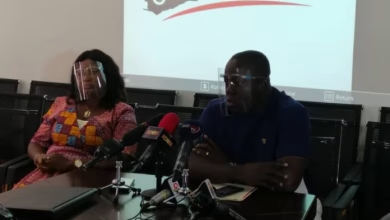A recent dialogue between the National Peace Council and prophets in the Greater Accra Region became contentious when Prophet Nigel Gaisie took the spotlight. The meeting, held on Tuesday, saw Gaisie openly criticize the Peace Council for what he perceived as its lack of consistent engagement with critical issues.
Gaisie, the founder of True Word Prophetic Fire Ministries, accused the Peace Council of being overly reactive, only mobilizing its efforts around election times. He cited notable incidents where he felt the Council had failed to take a stand, including the violence during the Ayawaso West Wuogon by-election and the killings in Techiman.
“I live close to Ayawaso West Wuogon and witnessed the events firsthand,” Gaisie stated. “Yet, we are still waiting for the Peace Council to address this or issue a communiqué.”
He continued, “During the Techiman violence, we saw our fellow Ghanaians lose their lives, and up until now, there has been no statement from the Peace Council. Recently, a Ghana Statistical Service survey revealed that many Ghanaians struggle to afford three square meals, yet we have an Agricultural Minister paid with our taxes.”
Gaisie urged the Council to be more proactive and address issues comprehensively rather than engaging in what he described as selective action. He emphasized that genuine peace requires a consistent and holistic approach.
“The establishment of peace cannot occur in isolation,” he asserted. “Certain conditions and principles must be upheld for peace to be truly realized.”
In response to Gaisie’s criticisms, Rev. Dr. Ernest Adu Gyamfi, Chairman of the National Peace Council, addressed the allegations, defending the Council’s record and its efforts to promote peace.
Additionally, Archbishop Nicholas Duncan-Williams, Founder and Presiding Archbishop of Action Chapel International, offered guidance to both prophets and politicians in anticipation of the upcoming elections, urging them to focus on constructive and collaborative efforts.
